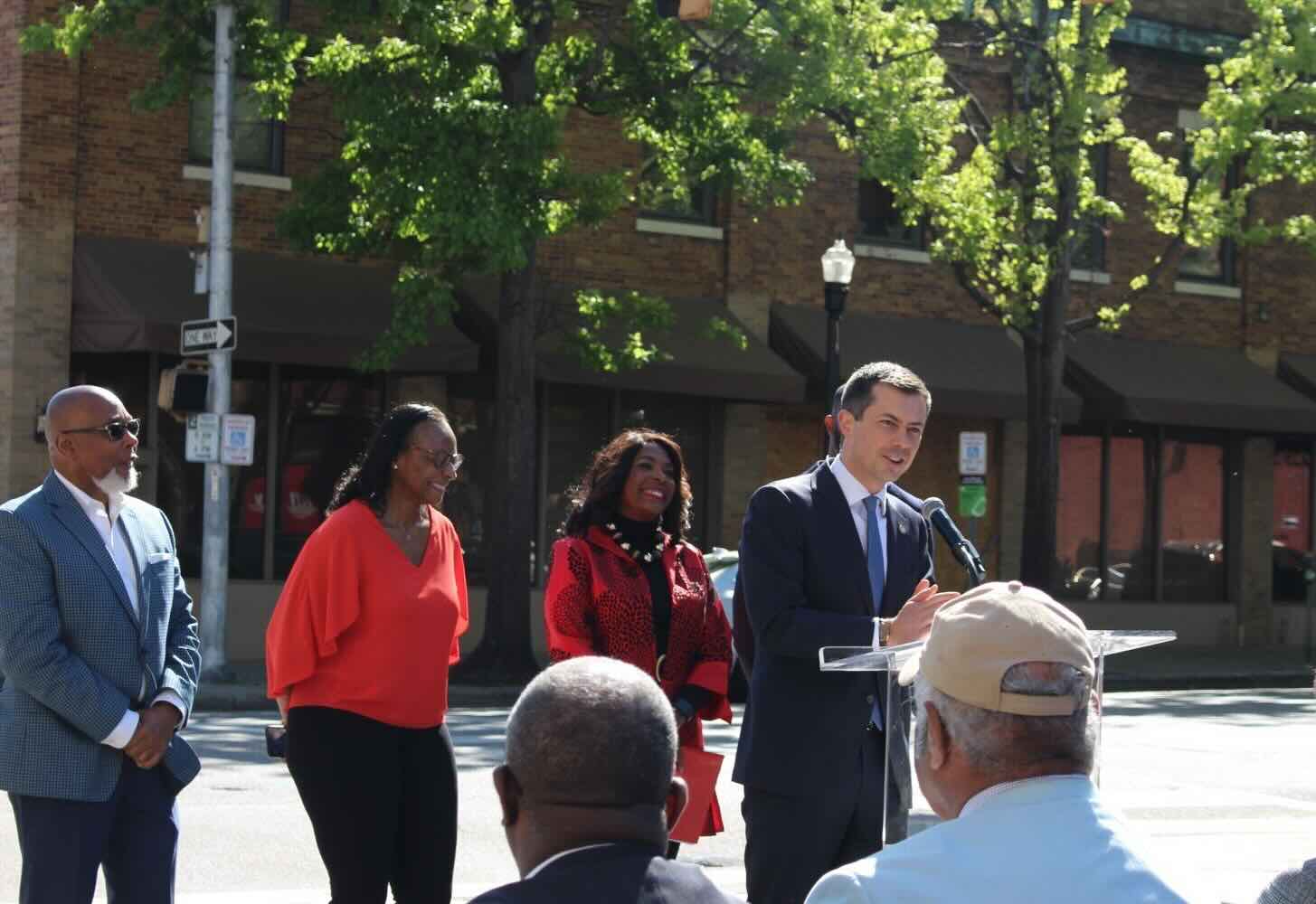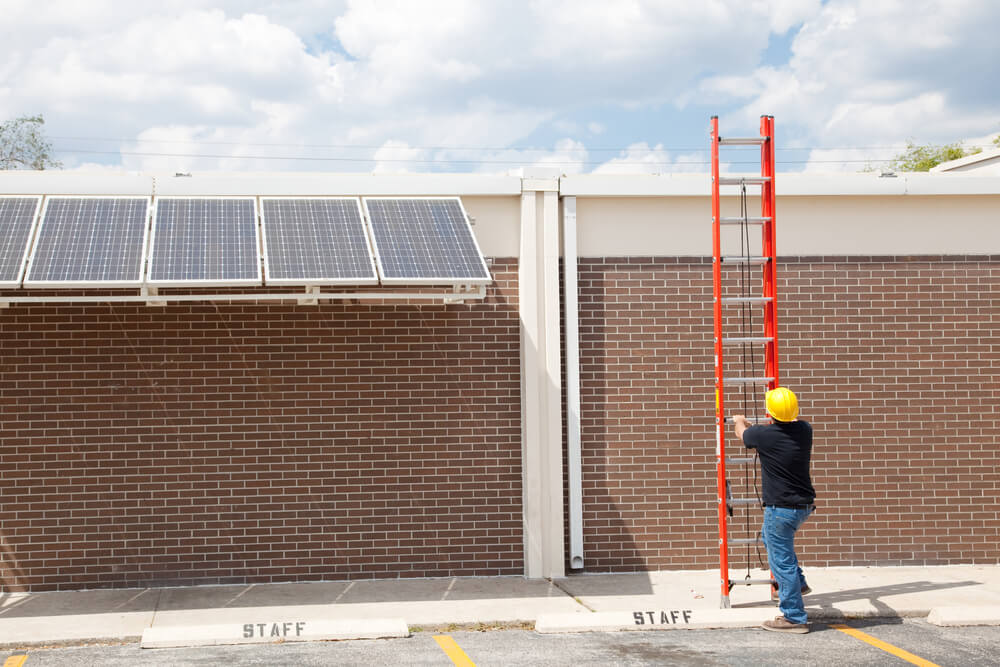ImpactAlpha, Jan. 17 – A computer glitch that snarled air traffic last week presented a fitting backdrop as government and finance leaders gathered at the Milken Institute’s Public Finance Forum to explore ways to shore up the U.S.’s infrastructure and competitive positioning.
On the agenda: optimizing the deployment of more than $1 trillion in federal funding to ensure investments in broadband, decarbonized buildings and a skilled workforce as well as clean energy and electric vehicles reach every community.
As funding from last year’s infrastructure, Inflation Reduction Act and CHIPS and Science Act begin to flow, semiconductor, EV and battery plants are already rising in states across the U.S.
The challenge is ensuring the investments build a more inclusive and equitable future. The communities that have the most to gain from the torrent of federal funding are often those least equipped to access it.
The forum included the debut of the Milken Institute’s Community Infrastructure Center, which connects community projects with public and private funding, technical assistance and other resources.
“If we maximize this moment coming out of the pandemic,” said Cleveland mayor Justin Bibb, mid-sized cities like Cleveland, Detroit and Tulsa “could write the next chapter of America’s economic growth story.”
Emerging Market America
The Milken Institute advocates borrowing blended finance models from international development to invest in what it calls “emerging market America.”
Some investors are already keying in on the opportunity. Private equity firm Trident invests in small cap consumer, industrials and health care companies outside the nation’s main commercial centers. “Why would you want to be playing in markets where everybody already exists?” asks Trident’s Aron Betru. “You need to be coming into the middle of this country, Emerging Market America.”
Trident’s American Dreams buyout fund helps its portfolio companies hire locally, diversify their supply chains, park their capital with local community banks, and source talent from historically Black colleges and universities and other local schools. Betru sees a billion dollar a quarter opportunity over the next five years for Trident.
“Be the one that actually can find opportunities to help grow it,” urged Betru. “The net result is a benefit both for the investors but also for the community that was capital starved.”
Foundation Credit, an infrastructure debt fund, fills a funding gap for local governments that can’t access traditional tax-exempt financing or off-the-shelf commercial capital for projects ranging from workforce and affordable housing to wastewater systems. It prices debt based on the long-term resiliency of the projects.
Not every municipal project financing should be drawn from the tax-exempt retail pool, says Foundation Credit’s Hector Negroni. As the capital needs grow and resources are more constrained, “finding ways to partner with private capital is a huge difference maker.”
Siting solutions
The Inflation Reduction Act, in particular, has changed the game. “The U.S. has just stolen a march on the rest of the world,” said Lawrence Slade of the Global Infrastructure Investor Association. “We’re now seeing a shift of funds to the U.S.” as pension funds and other infrastructure investors look for the best returns and long term outlooks, he said.
The multiplier effect of the IRA’s energy subsidies will drive down energy costs, noted Goldman Sachs Research’s Alec Phillips, who predicted the U.S. will be one of the lowest-cost providers of electricity in the world. “That will be a big deal in terms of business location decisions,” he said, with cheap electricity, rather than labor costs, becoming a driving factor for businesses.
John Podesta, newly appointed by President Biden to oversee the implementation of the IRA, highlighted the Act’s incentives for projects sited in lower income and underserved areas. It “puts a premium on the private sector to make the investments where people need work, where they have borne the brunt of industrial power solutions,” said Podesta, who also served in the Obama and Clnton administrations.
“You’re seeing the market react to that. The provisions are likely to change the landscape of where investment is made in this country.”
One holdup is permitting. A permitting reform bill championed by West Virginia senator Joe Manchin was defeated last year, and its future is uncertain in a deeply divided Congress. But Podesta said the administration has leeway under the Federal Power Act, particularly for transmission line projects. “We have authority to take on the challenge on our own, and we’re going to do that.”
Red states, blue cities
The implementation of federal funds will require cooperation between state governments and city and regional leaders. Yet “state and local relationships are highly fraught in certain parts of the country,” observed Brookings Institution’s Amy Liu, especially between “red states and blue cities.”
Some Republican-led states have pre-empted or reversed ballot measures approved by city voters around paid sick leave or other worker protections, Liu noted. “These kinds of state and local dynamics and tensions have a huge impact on the way states and localities and regions and business leaders work together around these public investments.”
“We need to see a new era of bipartisanship outside of D.C.,” said Liu, who sees opportunity for common ground around jobs, the economy and infrastructure development.











